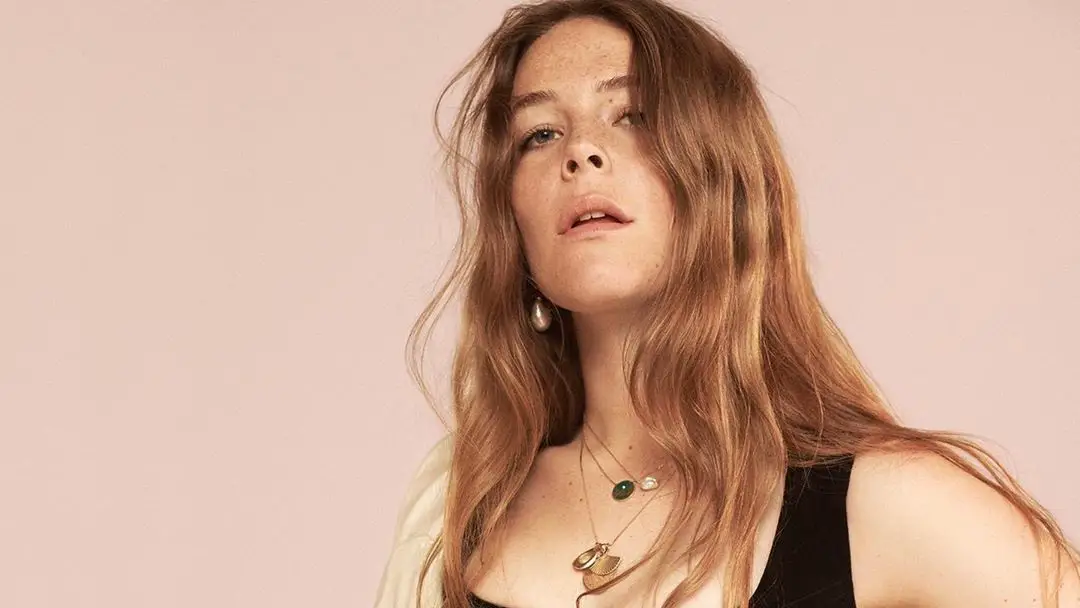Maggie Rogers is an oracle of empowering declarations. The folk-pop singer, a self-described “witchy feminist rockstar,” delivers cathartic music to a constantly growing fanbase. Within each song are subtle, uplifting sentiments, and Rogers’ feminism, while not explicitly detailed in her music, shapes the content she delivers.
Her newest album, “Heard It in A Past Life,” is an ode to personal liberty, and has an ethereal and earthy voice that celebrates its freedom. Rogers’ voice isn’t her only striking feature; her wild hair, spasmodic dancing and playful smiles add up to her independent persona. Intelligent, otherworldly and untamable, Rogers’ stage presence is truly extraordinary. Audiences seeking electro-pop wisdom will enjoy these five empowering attributes that dominate her music.
1. Her lyrics celebrate liberation.
Action courses through Rogers’ musical repertoire, and she recognizes her ability to move on her own behalf. In “Alaska,” the artist’s first hit song, the track’s evocative lyrics celebrate self-ignited liberation. She describes “walking off” past disappointments and strolls until her mind is at ease; throughout the song, Rogers details more personal grasps for healing, until she enthusiastically chops off her hair to banish old grievances.
When explaining the coping mechanism, Rogers said, “I have this theory about hair. It’s literally old pieces of you, and it’s really thick. I feel like things sometimes get caught in it. I find a lot of therapy … in the visceral action of being able to cut it.”
Obviously, the singer never hesitates to recapture control over her emotions. In “Overnight” she promises an unnamed person, “If you lie to me / I’m gone.” And throughout “Light On,” she swears gloomy circumstances will never stop her from “dancing at the end of the day.” Repeatedly, Rogers delights in self-assured, independent action.
https://www.instagram.com/p/BwzeNWIlp_t/
2. While promoting empowerment, Rogers never advocates hurting others.
Confidence, for a lot of people, is difficult to achieve. Too many find self-assurance from putting down their peers and basking in their defeat. While promoting empowerment, Rogers never perpetuates harmful mentalities; her music idealizes inner confidence, removed from those surrounding her. In the chorus of “Overnight,” she croons, “People change overnight / things get strange, but I’m alright / I’m still here, and I’m still high.”
Rogers strives for a confidence detached from strange people and circumstances. In “Light On,” she further details self-sustaining nerve, singing, “Oh, if you keep reaching out / then I’ll keep coming back / and if you’re gone for good / then I’m okay with that.”
Throughout “Back in My Body,” she embodies an unshakeable spunk by declaring, “Lost you in the border town of anywhere / I found myself when I was going everywhere. / This time I know I’m fighting / This time I know I’m / back in my body.” Impressively, Rogers sings of empowerment without injuring her fellow humans.
3. Her songs are unashamedly emotional.
As she advocates confidence, Rogers also never hesitates to express strong emotion in her lyrics. Vulnerability characterizes each song and adds a genuine, transparent quality to the singer’s music.
Rogers, in reference to her tactics for overcoming fear, once said, “The way I feel the most powerful is by being the most vulnerable … If I tell you exactly how I’m feeling, you can’t hurt me … I don’t know if it’s a good thing or a bad thing, but it sure as hell empowers my art.”
In the singer’s mind, that vulnerability gives her the strength to deal with life’s frightening moments; she refuses to demonize emotion, and her lyrics display that refusal. In “Burning,” the young singer celebrates falling “head over heels completely in love” with the phrase, “I’m in love / I’m alive / Oh, I’m burning.”
The emotions she expresses, however, are not always positive. According to Rogers, “Light On” is “the most vulnerable song I’ve ever written.” Throughout the tune, she struggles to tell a supportive group of people “that it wasn’t always perfect, that I wasn’t always happy.” Despite her struggles, Rogers begs her audience to accept “that I’m vulnerable in oh-so many ways / oh, and I’ll never change.”
4. She esteems personal growth
Throughout the album, Rogers describes moments of change within her own life. In the slow, solemn ballad “Past Life”, she sighs, “Oh, I could feel the change a’ coming / felt it in the breeze. / Oh, I could feel the change a’ coming / Coming right for me.” Later, Rogers’ mournful crooning becomes a howl when visions of her “old life” and “old friends” appear before her.
As she describes the memories, listeners begin to grasp the melancholy nature of change, but elsewhere, Rogers focuses on change’s positive outcomes. “Back in My Body” recounts the benefits of an intense awakening, during which “her mind came rushing in.” In “Retrograde,” she celebrates “finding all the things that I can’t do without” during a “breakdown.”
Obviously, Rogers recognizes both the gloomy and the useful elements of change. Her songs are “centered around a motif of self-realization and growth,” which lends optimistic vibes to the singer’s work.
5. She’s not seeking anyone’s validation
The entertainment industry constantly imposes grueling beauty standards on women, and these standards, no matter how ridiculous, govern public opinion. Women are stigmatized for both accepting and rejecting those unspoken rules, but Rogers, with a carefree smile, dismisses these expectations.
She is unbothered by the world’s opinions because, first and foremost, the rising star views wardrobe and makeup as opportunities for pleasure. According to Rogers, style “just has to be fun.” Artistic happiness governs her fashion decisions, encouraging self-acceptance among fans, and the result is beautiful.
At first glance, Rogers’ empowering, feminist sentiments evade the public eye; after all, her primary goal is to craft beautiful, self-satisfying music. She isn’t trying to explain the entirety of “The Feminine Mystique” or write a detailed article on women’s rights. It’s implicit, and her uplifting outlook is present in each song she creates.
Somerset Maugham, an English author, once said, “Art is a manifestation of emotion, and emotion speaks a language that all may understand.” Rogers allows emotion to invade her lyrics, and consequently empowers audiences. With the magic and wisdom of an ancient oracle, Rogers shares her message, and everyone understands.
















